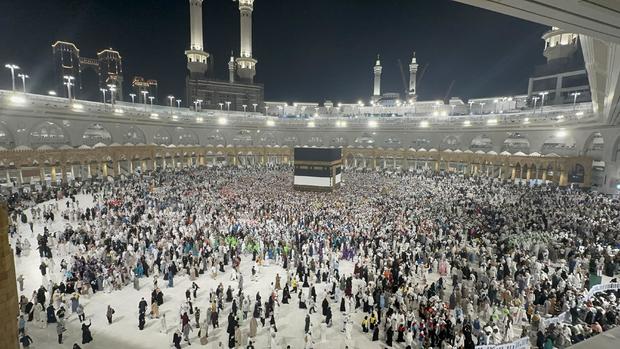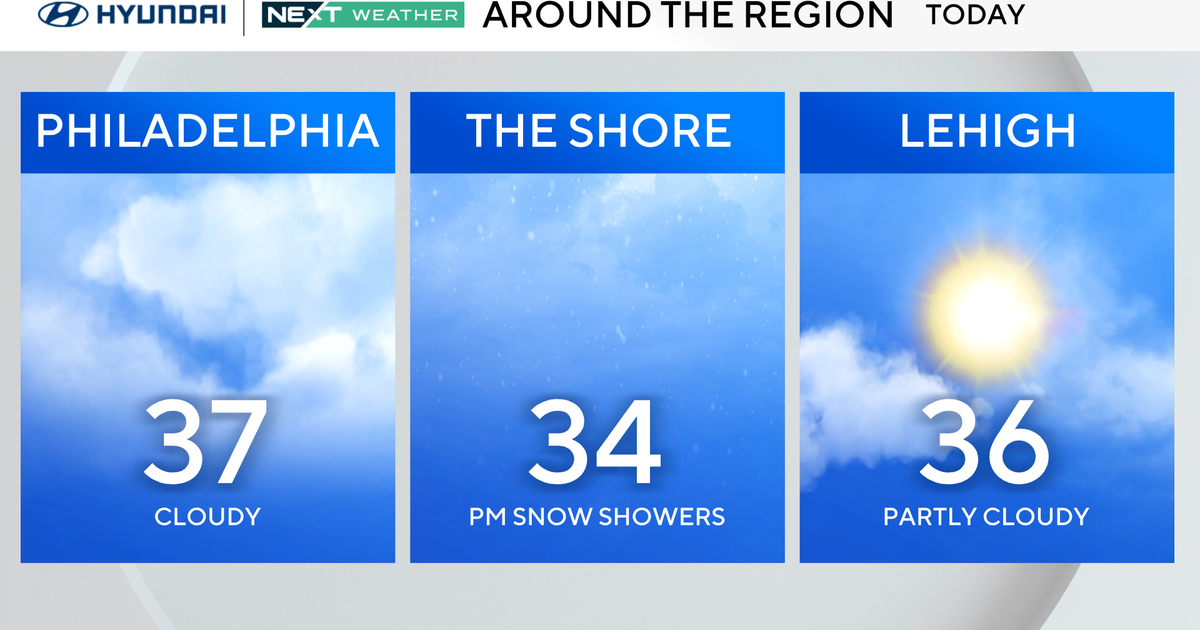More than 1,000 people die at hajj pilgrimage 2024 amid extreme heat in Saudi Arabia, AFP reports
Riyadh — The death toll from this year's hajj has exceeded 1,000, an AFP tally said on Thursday, more than half of them unregistered worshippers who performed the pilgrimage in extreme heat in Saudi Arabia. The new deaths reported Thursday included 58 from Egypt, according to an Arab diplomat who provided a breakdown showing that of 658 total dead from that country, 630 were unregistered.
All told around 10 countries have reported 1,081 deaths during the annual pilgrimage, one of the five pillars of Islam which all Muslims with the means must complete at least once. The figures have come via official statements or from diplomats working on their countries' responses.
The hajj, whose timing is determined by the lunar Islamic calendar, fell again this year during the oven-like Saudi summer.
The national meteorological center reported a high of 51.8 degrees Celsius (125 degrees Fahrenheit) earlier this week at the Grand Mosque in Mecca. Egyptian officials reached by CBS News would not confirm the figures stated by the AFP, but dozens of videos posted on social media in recent days showed bodies laying on the streets around the Grand Mosque.
Jordan's Foreign Ministry released a statement via social media on Thursday confirming the deaths of 68 nationals who had traveled to Saudi Arabia for the hajj, adding that 16 others remained missing. The ministry said many of those who had died were being buried in Mecca per the wishes of their families.
According to a Saudi study published last month, temperatures in the area are rising 0.4 degrees Celsius, or just less than one degree Fahrenheit, each decade.
Every year, tens of thousands of pilgrims attempt to perform the hajj through irregular channels as they cannot afford the often costly official permits. Saudi authorities reported clearing hundreds of thousands of unregistered pilgrims from Mecca earlier this month, but it appears many still participated in the main rites which began last Friday.
This group was more vulnerable to the heat because, without official permits, they could not access air-conditioned spaces provided by Saudi authorities for the 1.8 million authorized pilgrims to cool down after hours of walking and praying outside.
"People were tired after being chased by security forces before Arafat day. They were exhausted," one Arab diplomat told AFP on Thursday, referring to Saturday's day-long outdoor prayers that marked the hajj's climax.
The diplomat said the principal cause of death among Egyptian pilgrims was the heat, which triggered complications related to high blood pressure and other issues.
In addition to Egypt, fatalities have also been confirmed to AFP by Malaysia, Pakistan, India, Jordan, Indonesia, Iran, Senegal, Tunisia and Iraq's autonomous Kurdistan region, though in many cases authorities have not specified the cause.
Friends and family members have been searching for pilgrims who are still missing.
On Wednesday they scoured hospitals and pleaded online for news, fearing the worst during the scorching temperatures.
Saudi Arabia has not provided information on fatalities, though it reported more than 2,700 cases of "heat exhaustion" on Sunday alone.





